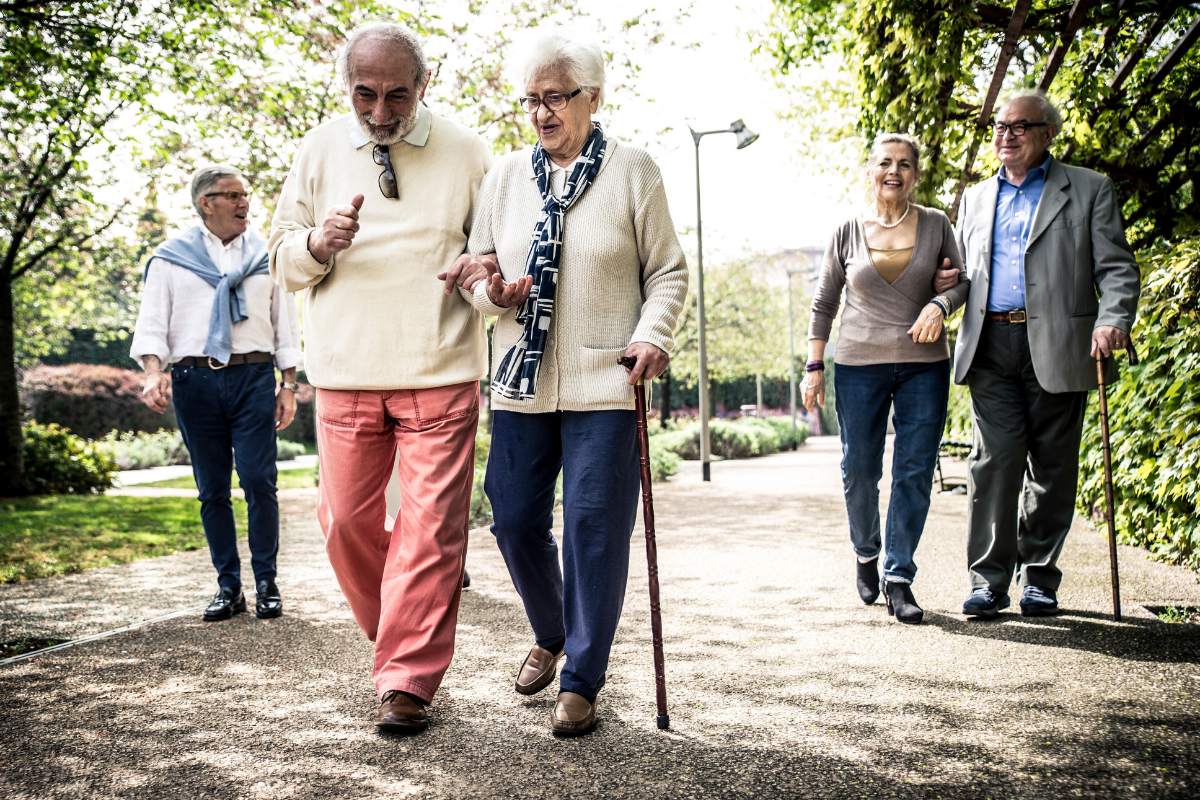Without a doubt, regular exercise is one of the best things you can do for your health regardless of your age.
It can combat a variety of health issues & conditions, control your weight loss or weight gain, and improve your mood.
In saying that, the type of exercise you choose for this really does matter, especially as you age.
For older adults, low-impact exercises are always best because they put little-to-no stress & strain on joints and reduce any chance of injury, while still providing the body and mind with many benefits.
Walking is Great For Your Mind
Once you start walking more regularly, you will certainly notice how your physical health is improving almost immediately.
Your doctor, care team, family members, and friends might also notice a change in your overall mood and mental well-being.
Despite the fact that walking is a low-impact exercise, we’d always advise seeking advice from your GP before you start walking regularly as they’ll best advise how often and how long you should walk.
Regularly walking in your local area may also expand the size of your brain’s hippocampus which is largely responsible for memory.
Furthermore, it can also enrich the quality of your sleep and reduce depression; both can be common in older adults.
There is some research that suggests that regularly walking can result in an improvement in mild cognitive impairment, which is a medical condition that can lead to a higher risk of developing Alzheimer’s disease.
These are but a few reasons why walking can and does benefit the brain.
Finally, walking with a friend or a group of friends is a great walk to socialise and enhance your emotional health.
By walking at a steady pace you can have a conversation with your friends while improving your health all at the same time.

Walking is Great For Your Body
As we’ve mentioned already, exercise is an important part of a healthy lifestyle and becomes even more important as you get older.
Walking can lower blood pressure and slow your heart rate which is important as both are critical in reducing the risk of heart disease.
Walking also helps increase the body’s ability to process glycogen and control surplus blood sugars to help prevent diabetes.
Additionally, walking is a fantastic way to maintain a healthy weight and can protect your body from any chronic inflammation.
If you haven’t exercised much in the past, and feel like it’s too late to reap any benefits in your elderly years, fear not! You can still benefit from it.
By becoming fitter in your elderly years, you can halve your risk of having a stroke.
Add Walking to Your Routine
Not unlike adding fruits & vegetables to your diet and receiving all the nutritional benefits, adding walking to your lifestyle will help increase physical health and overall wellbeing.
Honestly, there are not many, if any, health disadvantages to walking regularly.
However, in saying that, speak with your GP about what is going to work best for you based on your current health.
Regardless of the weather, you’ll be able to exercise regularly whether it be indoors or outdoors.
One final suggestion and which is referring to motivation more than anything is to track your progress on a calendar or with a smartwatch.
As you note your progress, you’ll start to see improvements in your mind and body and you’ll start to see just how good walking can be for you.
If you would like to hear more about how Accent Home Care can assist you with home care services and a higher level of home care, call us on (03) 8720 1338 or email us at homecare@accenthomecare.org.au.




